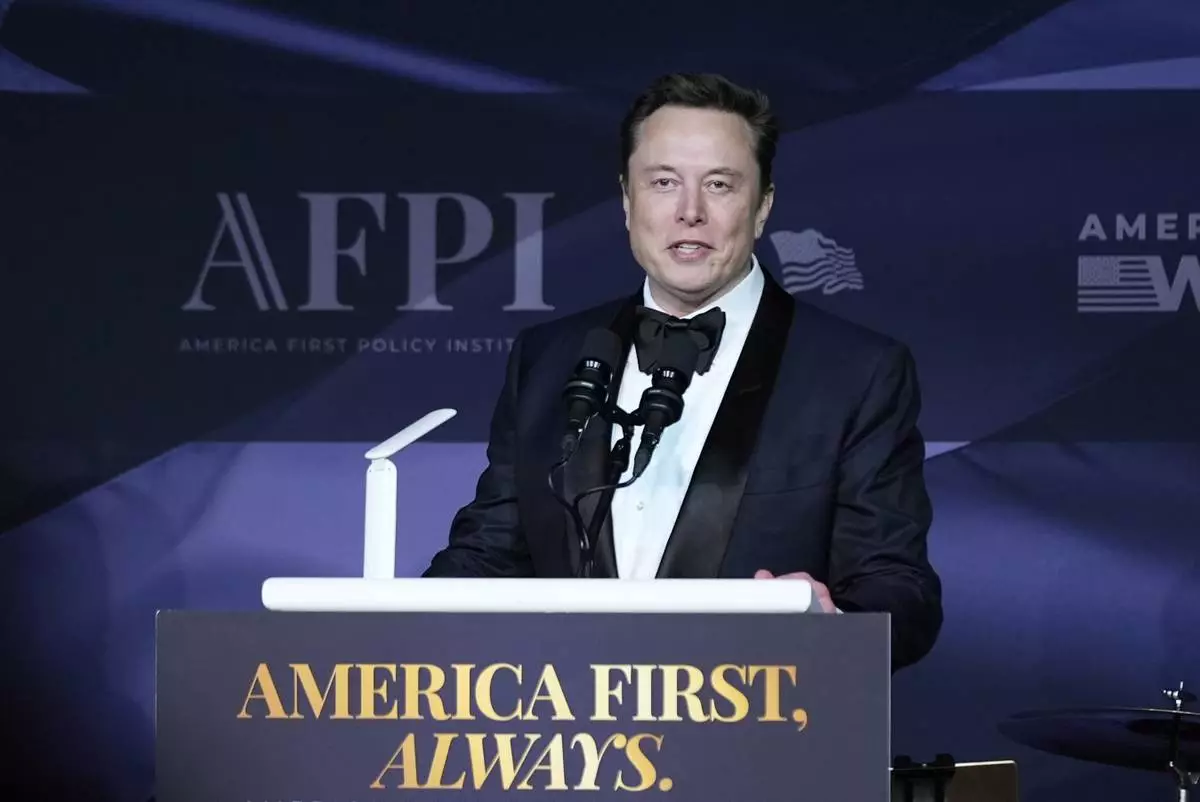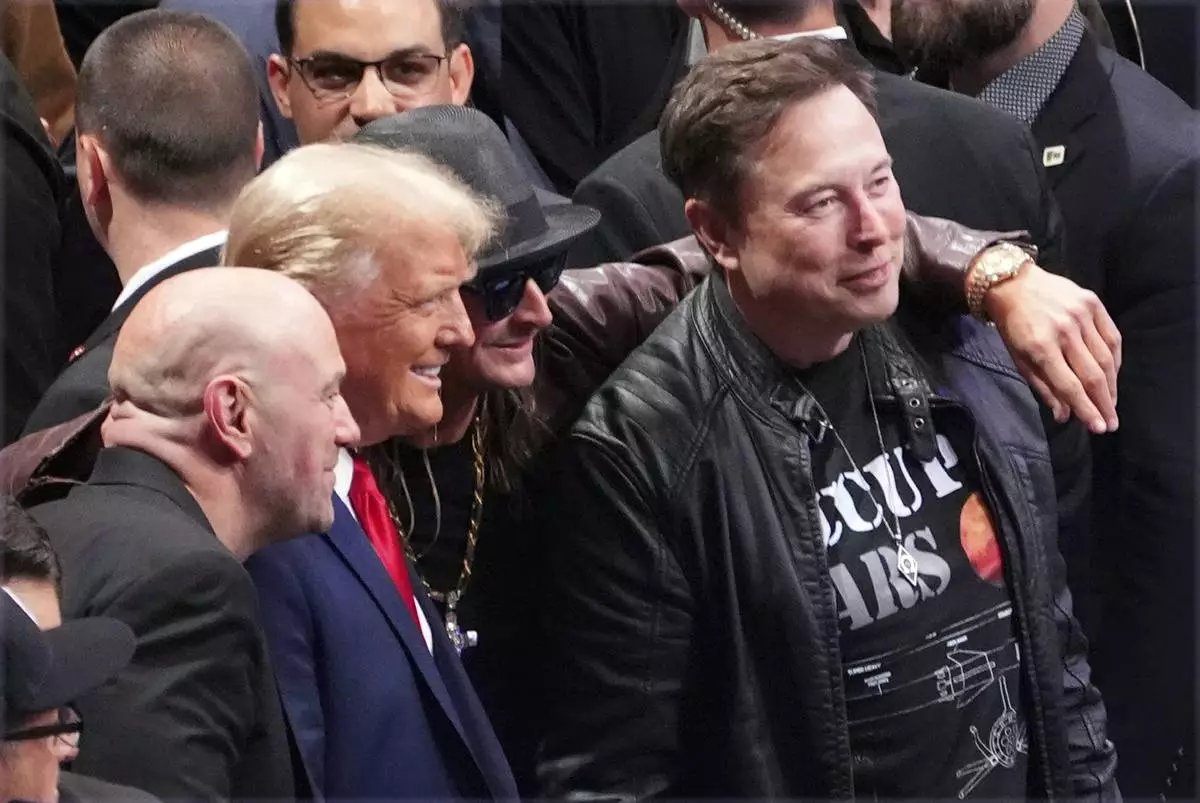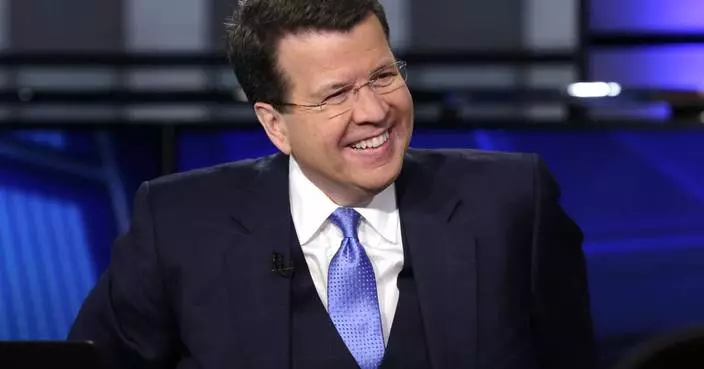Immigration in 2024 drove U.S. population growth to its fastest rate in 23 years as the nation surpassed 340 million residents, the U.S. Census Bureau said Thursday.
The almost 1% growth rate this year was the highest it has been since 2001, and it was a marked contrast to the record low of 0.2% set in 2021 at the height of pandemic restrictions on travel to the United States, according to the annual population estimates.
Immigration this year increased by almost 2.8 million people, partly because of a new method of counting that adds people who were admitted for humanitarian reasons. Net international migration accounted for 84% of the nation’s 3.3 million-person increase between 2023 and 2024.
Births outnumbered deaths in the United States by almost 519,000 between 2023 and 2024, which was an improvement over the historic low of 146,000 in 2021 but still well below the highs of previous decades.
Immigration had a meaningful impact not only nationally but also for individual states, accounting for all of the growth in 16 states that otherwise would have lost population from residents moving out-of-state or from deaths outpacing births, William Frey, a demographer at The Brookings Institution, said in an email.
“While some of the surge may be attributed to border crossings of asylees and humanitarian migrants in an unusual year, these numbers also show how immigration can be an important contributor to population gains in a large swath of the nation that would otherwise be experiencing slow growth or declines,” Frey said.
As it has been throughout the 2020s, the South was the fastest growing region in the United States in 2024, adding more new residents — 1.8 million people — than all the other regions combined. Texas added the most people at 562,941 new residents, followed by Florida with an additional 467,347 new residents. The District of Columbia had the nation's fastest growth rate at 2.2%.
Three states — Mississippi, Vermont and West Virginia — lost population this year, though by tiny amounts ranging from 127 to 516 people.
In 2024, there was an easing up in the number of people moving out of coastal urban states like California and New York and into the Sunbelt growth powerhouses like Florida and Texas compared with the peak pandemic years, Frey said.
In fact, both California and New York added people in 2024 after declines this decade, growing by 232,570 people and 129,881 people, respectively, primarily because of immigration.
Still, the large number of people moving South this decade has caused the U.S. population center to turn sharply south after drifting southwesterly for several decades in “a demographic shock to the evolving settlement pattern of the United States,” said Alex Zakrewsky, an urban planner in New Jersey who calculates the population center each year.
The number of children in the United States dropped from 73.3 million in 2023 to 73.1 million in 2024.
The group of people being included in the international migration estimates are those who enter the country through humanitarian parole, which has been granted for seven decades by Republican and Democratic presidential administrations to people unable to use standard immigration routes because of time pressure or their government’s poor relations with the U.S. The Migration Policy Institute, a Washington-based research organization, said last week that more than 5.8 million people were admitted under various humanitarian policies from 2021 to 2024.
Capturing the number of new immigrants is the most difficult part of the annual U.S. population estimates. Although the newly announced change in methodology is unrelated, the timing comes a month before a return to the White House of President-elect Donald Trump, who has promised mass deportations of people in the United States illegally.
The bureau’s annual calculation of how many migrants entered the United States in the 2020s has been much lower than the numbers cited by other federal agencies, such as the Congressional Budget Office. The Census Bureau estimated 1.1 million immigrants entered the United States in 2023, while the Congressional Budget Office’s estimate was 3.3 million people. With the revised method, last year's immigration figures are now recalculated by the Census Bureau at almost 2.3 million people, or an additional 1.1 million people.
Because the Census Bureau survey used to estimate foreign-born immigration only captured people living in households with addresses, it overlooked large numbers of immigrants who had come for humanitarian reasons this decade since it often takes them a few years to get a stable home, said Jennifer Van Hook, a Penn State demographer who worked on the change at the bureau.
“What has happened over time is that immigration has changed,” Van Hook said. “You have numbers of people coming in who are claiming asylum and being processed at the U.S.-Mexico border from across the globe.”
Follow Mike Schneider on the social platform X: @MikeSchneiderAP.

FILE - New United States citizens wave American flags during a naturalization ceremony during halftime at an NFL football game between the Jacksonville Jaguars and the New York Jets, Dec. 15, 2024, in Jacksonville, Fla. (AP Photo/Phelan M. Ebenhack, File)
In the first major flex of his influence since Donald Trump was elected, Elon Musk brought to a sudden halt a bipartisan budget proposal by posting constantly on his X megaphone and threatening Republicans with primary challenges.
The social media warnings from the world's wealthiest man preceded Trump's condemnation of a measure negotiated by GOP House Speaker Mike Johnson, which effectively killed the stopgap measure that was designed to prevent a partial shutdown of the federal government.
Washington was scrambled a day after Musk's public pressure campaign. Trump on Thursday first declined to say whether he had confidence in Johnson. But later in the day, Trump praised him and House leaders for producing “a very good Deal,” after they announced a new plan to fund the government and lift the debt ceiling.
Before the new deal was reached, Congressional Democrats mocked their GOP counterparts, with several suggesting Trump had been relegated to vice president.
“Welcome to the Elon Musk presidency,” Democratic Rep. Robert Garcia of California wrote on X.
What was clear, though, is Musk’s ascendance as a political force, a level of influence enabled by his great wealth. In addition to owning X, Musk is the CEO of Tesla and Space X.
“There is no doubt he does wield a lot of influence over Republicans right now due to his proximity to Trump,” said Chris Pack, former communications director for the National Republican Congressional Committee and the Senate Leadership Fund.
But Pack also said that Musk's threats pose potential risks for House Republicans, who begin next year with a five-seat majority that will shrink temporarily because of Trump’s nomination of some GOP lawmakers to administration posts.
“This isn’t going to help pass the agenda if you are going to cost a bunch of Republicans in very razor-thin moderate seats if you’re going to make them lose in primaries,” Pack said. “All that does is give the keys to these districts over to the Democrats.”
Musk spent an estimated $250 million during the presidential campaign to support Trump, contributing heavily to America PAC, a super political action committee that deployed canvassers, aired TV ads and reached voters digitally in battleground states. He had signaled after the election he was willing to back GOP primary challenges to Republican members of Congress seeking re-election in 2026 who waver on Trump's appointments and agenda.
He renewed the threat pointedly Wednesday.
“Any member of the House or Senate who votes for this outrageous spending bill deserves to be voted out in 2 years!” he wrote on X. He also called it “one of the worst bills ever written.”
Musk wasn't alone in fanning GOP anger against the bill, which included several compromise measures to get Democratic support in the Senate in the final weeks before Republicans take control of that chamber. Biotech entrepreneur and former GOP presidential candidate Vivek Ramaswamy, who is Musk’s partner leading the new Department of Government Efficiency, also posted against the bill, as did Trump's eldest son, Donald Trump Jr.
Musk played down his role at times, suggesting after some praise online, “All I can do is bring things to the attention of the people, so they may voice their support if they so choose.” And the president-elect told NBC News that he had spoken to Musk prior to the Tesla CEO's first posts.
“I told him that if he agrees with me, that he could put out a statement,” Trump said.
Karoline Leavitt, the incoming White House press secretary, pushed back against Democratic critics who suggested Musk was calling the shots.
“As soon as President Trump released his official stance on the CR, Republicans on Capitol Hill echoed his point of view," Leavitt said in a statement, referring to the continuing resolution. "President Trump is the leader of the Republican Party. Full stop.”
Throughout the day Wednesday, Musk replied to posts on X from Republican House members announcing opposition to the bill with words of thanks, and punctuating their public commitments.
And he took a victory lap after Trump came out against the bill: “The voice of the people was heard. This was a good day for America."
He was responding to Kentucky Rep. Andy Barr's post: “The phone was ringing off the hook today. And you know why? Because they were reading tweets...from Musk and Vivek Ramaswamy.”
By late afternoon Thursday and before the new plan was put to a vote, Musk declared success and posted a picture of the new, slimmed down alternative alongside the voluminous, original measure he helped kill. “This shows how much your voice matters,” he posted. “And having a President like @realDonaldTrump means that your voice is finally heard.”
Conservative activists at the annual AmericaFest gathering in Phoenix cheered Musk Thursday and hailed the suggestion he could replace Johnson as speaker. There’s no requirement that the speaker be an elected member of the House of Representatives.
“Should Mike Johnson remain speaker of the House?” conservative media host Jack Posobiec asked his audience during a live taping of his talk show, prompting a chorus of “Noooooo!!!” from his audience.
Johnson had been scheduled to attend AmericaFest, but canceled after the budget deal fell apart.
“Should Elon Musk be speaker of the House?” Posobiec asked his audience, prompting cheers.
Beaumont reported from Des Moines, Iowa. Associated Press Bill Barrow contributed to this report from Phoenix.

FILE - Elon Musk speaks after President-elect Donald Trump spoke during an America First Policy Institute gala at his Mar-a-Lago estate, Nov. 14, 2024, in Palm Beach, Fla. (AP Photo/Alex Brandon, File)

FILE - President-elect Donald Trump poses for a photo with Dana White, Kid Rock and Elon Musk at UFC 309 at Madison Square Garden, Nov. 16, 2024, in New York. (AP Photo/Evan Vucci, File)












